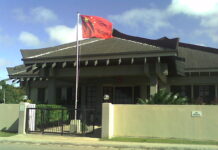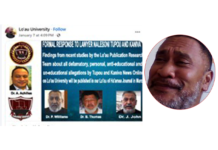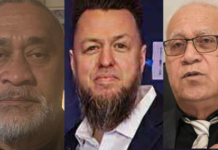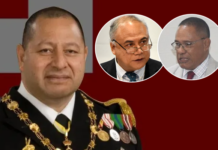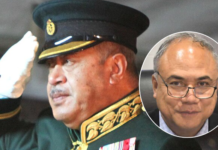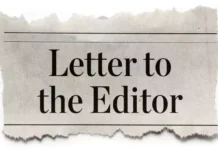Analysis The reported Trump administration memo proposing a travel ban on Tonga and two other Pacific nations has exposed uncomfortable truths about our nation’s governance—truths we can no longer ignore.
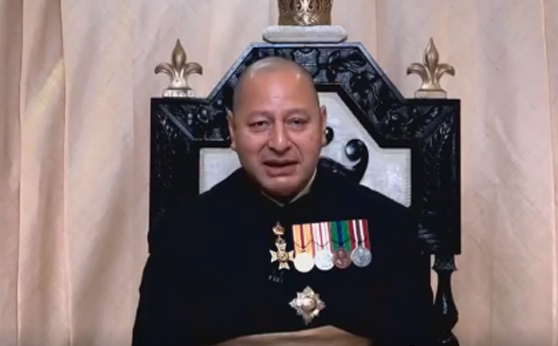
The memo’s claim that Tonga is among 36 countries involved in “widespread government fraud” warrants attention.
Widespread Government Fraud
But what does “widespread government fraud” mean? The term refers to systemic, large-scale dishonest or illegal activities within a government that involve deception for financial or political gain. It implies that corruption is not isolated to a few individuals but permeates multiple levels or departments of governance.
This definition leads us to a critical question: Which instances of fraud in Tonga might be sufficiently systemic and severe to warrant consideration of a travel ban by the Trump administration?
It can be determined that among various cases of Tongan government fraud, the widespread illegal passport sales stand out as particularly egregious.
While this government fraud took place over fifty years ago, its detrimental consequences have persisted, creating many of the systemic issues observable in Tonga today—a situation the US administration might have perceived as seriously threatening its national security.
Royal Family Involvement
The ongoing involvement of Tonga’s royal family and nobility in passport issuance—or their greater influence in granting passports to foreigners—amid a deeply flawed and unchecked democratic system, could be the reason the U.S. has no choice but to impose a travel ban.
But what exactly was this passport scam?
It was a secretive passport sales scheme that ran from 1983 until pro-democracy leader ‘Akilisi Pōhiva exposed it in the 1990s, challenging official claims that only Tongan Protected Person Passports (TPPPs)—not state passports—were sold.
TPPPs, it must be noted, are merely travel documents that confer neither Tongan nationality nor citizenship rights. Holders face significant restrictions, including potential denial of re-entry to Tonga and limited international recognition.
However, according to reports, since the TPPP did not grant automatic residence rights in Tonga, a growing number of countries, including Australia and New Zealand, refused to recognise it. This situation prompted the then-King to grant naturalisation to any foreigner of “good character on humanitarian grounds.”This means that the scam also involved selling Tongan citizenship passports.While the official naturalisation fee was US$20,000, additional charges often increased the total cost to more than $35,000.
Passports, Lies, Scandal
The response in Parliament falsely telling Pohiva that only the TPPP was on sale took a turn in the early 1990s after a dramatic surge of Chinese migrants entering Tonga became so conspicuous that it ultimately prompted an inquiry by Pōhiva. He ultimately discovered the shocking truth—authentic Tongan citizenship passports—not just TPPPs—were being illegally sold to Asian buyers, directly contradicting the government’s earlier claims.
The illegal sale originated after the late King Tupou IV sought revenue-raising advice from Tonga’s Honorary Consul in Hong Kong, Mr George Chen Kai-cheng, who subsequently facilitated the scheme. It resulted in 426 Chinese citizens obtaining Tongan citizenship.
Since they had not resided in Tonga for the constitutionally mandated five years prior to application, their acquisition of citizenship passports was unlawful. Pōhiva subsequently sued the government in 1989 over these illegal sales.
Royal Complicity Endures
In response, King Tupou IV acknowledged his government could not revoke the passports or provide refunds to the Chinese recipients. He therefore convened an urgent Cabinet meeting in 1991 to amend the constitutional citizenship provisions, granting legal status to the 426 Chinese nationals.
This Tongan case exemplifies systemic corruption whose enduring patterns not only continue today but directly mirror Trump’s characterisation of “widespread government fraud.”
How and Why?
Although only 426 Chinese nationals were officially identified as having obtained passports through these illegal sales and travelled to Tonga, no documents made available reveal the full scale of the operation, which some estimate reached thousands, if not hundreds of thousands, of passports sold.
Although it was publicly announced that the sales had stopped, later incidents revealed the involvement of the royal family and government leaders in the ongoing sale of passports to individuals from Asia.
Blank Passports, Three Favours
As Kaniva News reported in 2013, the then Prime Minister Lord Tu’ivakano’s office had been asked to respond to a letter from the parliament’s opposition party asking to clarify why 15 Tongan passports were issued to a Chinese couple.
Mr. Sien Lee, the male, was issued with eight Tongan ordinary passports, and Ying Sien Lee, the female, was issued with seven.
The audit report listed the dates each passport was issued from June 2001 to October 2012. The expiry dates range from 2012 to 2021.
In that report, Kaniva said Pohiva told the House he had information that Tongan blank passports were being abused.
He described the mishandling of the Tongan blank passports as a “net that was thrown outside the circle of the Tongan authorities”.
We also reported that citizens of Tonga and China who hold valid diplomatic, official, and public affairs passports are allowed to enter China and Tonga without a visa.
MP Sunia Fili, however, questioned Deputy Prime Minister Sāmiu Vaipulu in the House in August 2012 regarding the Tongan government’s allowing the Chinese to use diplomatic, official, and service passports.
Fili said the deal for free visas between the two countries allows Tongans to enter China without a visa, but when the Chinese come to Tonga, they are given the diplomatic passport, official passport and service passports.
In his response, Vaipulu said the reason why they are given the three passports was to facilitate Chinese diplomats, officials and “service providers” along with the group of architects and planners that come to Tonga for the construction of the St George Palace.
The opposition party said the concern now was over the degree to which the passport would be used only for diplomatic and employment reasons.
It opened a door for the authorities to abuse it.
Notorious Passport Beneficiaries
The Tonga passport scandal became an international disgrace after it was revealed that international criminals exploited these passports for global travel.
Imelda Marcos, wife of former Philippine dictator Ferdinand Marcos, got a Tongan passport. The former Hong Kong Stock Exchange chief, Ronald Li, serving a four-year jail term for bribery, and textile billionaire Chen Din-hwa were also reportedly among the now legal passport holders.
Pōhiva claimed that Asian middlemen facilitated the sales. Whether these intermediaries properly managed the proceeds or all funds reached the Tongan government remains unclear.
Despite pocketing $26 million from the illicit passport sales, the entire sum was lost in 1999 by the king’s court jester, Jesse Bogdonoff, during financial dealings in the United States.
Monarchy, Corruption, and Consequences
The Trump administration’s travel ban memo did not emerge in a vacuum—it reflects decades of the U.S., one of the world’s largest democracies, scrutinising Tonga’s systemic fraud, enabled by a centralised power structure and feeble oversight.
While Tonga has taken steps toward democracy since the 2010 reforms, the lingering influence of royal and noble privilege continues to weaken institutional integrity.
Tonga’s democracy now faces a constitutional crisis, the king is overstepping his authority, reclaiming executive powers that his late brother, King George V, had surrendered. This regression into royal overreach perpetuates systemic corruption, weakens governance, and explains why Tonga remains under international scrutiny—as highlighted by the U.S. travel ban memo.
Now, the king’s son serves as the head of Tonga’s Immigration Department, as Minister of Foreign Affairs, where his decisions on passports can be final. Given the history of passport-related corruption in Tonga—including illegal sales and elite manipulation—the U.S. administration may have seen this concentration of authority in the monarchy as a red flag.
While the Trump administration has not yet detailed the terms of the travel ban, the king should prioritise constitutional reform to fulfil the late King George V’s intent: vesting all executive powers in Parliament and the Cabinet. Such measures are critical to eliminating systemic fraud.

